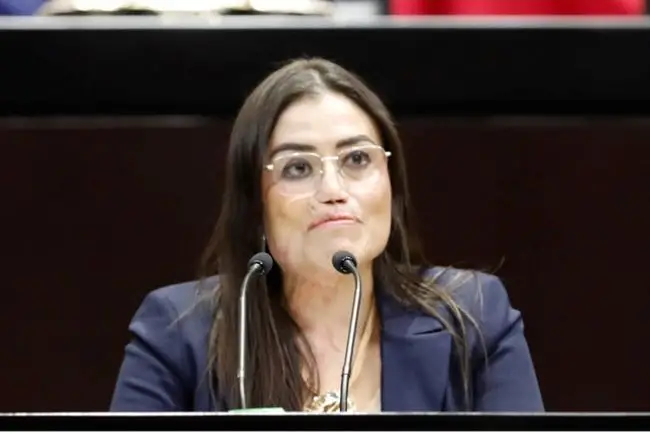Deputy Elizabeth Martínez Álvarez (PAN), secretary of Social Economy and Promotion of Corporatism, said that the country faces a challenge in pyramid fraud with cryptocurrencies, which is why it is necessary to strengthen the legal framework to punish these crimes more severely.
Likewise, promote financial education campaigns that alert citizens about the risks linked to associations, fraudulent investments and promote responsible insurance of cryptocurrencies and closer collaboration between public institutions, the financial sector, technological platforms and civil society.
“In pyramid scams in cryptocurrencies, in which this type of fraud has particularly proliferated alarmingly, they not only rob victims of their savings, but also affect the credibility of technological tools that could be great allies for the financial development of the country,” she said when inaugurating the International Legal Criminal Forum “Pyramid Fraud: Cryptocurrencies.”
Martínez Álvarez pointed out that fraud in Mexico is one of the most prevalent crimes, since up to 15 thousand cases of this crime are registered every day in various forms, affecting thousands of families and the stability of the economy.
He said that according to data from the National Institute of Statistics and Geography (Inegi), in the last year nearly 56 percent of Mexican households do not have access to formal financial services, which makes them especially vulnerable to this type of fraudulent schemes.
Also, according to the National Council for the Evaluation of Social Development Policy (Coneval), more than 40 percent of the Mexican population lives in poverty, which increases susceptibility to offers that promise quick and risk-free profits.
He stressed that the Attorney General’s Office (FGR) has intensified efforts to investigate and punish these crimes.
“Regulation should not be seen as an obstacle to innovation, but as a tool to guarantee legitimacy and reliability. Today more than ever we must commit to protecting the most vulnerable people in our society and to generate conditions that favor economic, fair and sustainable development.”
For her part, Aída Karina Banda Iglesias, former deputy of the Congress of Aguascalientes, stressed that, although there is no exact figure for the crime of pyramid fraud, it has increased excessively, affecting the most vulnerable families in Mexico, so there must be a response from the Mexican State through legal reforms that allow the subject who commits the conduct to be punished.
She pointed out that Mexico is perhaps a decade behind the legislation of other countries in this matter. For this reason, she highlighted the work that the Spanish government has done in this regard, since digital service providers have been given localization and standards for people, so that they can navigate with confidence, as well as in the strengthening of the cyber police, practices that can be carried out in our country.
He recalled that these reforms to the Penal Code should be the last thing the State has to do. Therefore, prevention mechanisms are required, such as financial education and that advertisers on the Internet who are going to make these types of investments are given the characteristics of a banking institution.
In his opportunity, Carlos Héctor Daza Zaragoza, president of the College of Law Professors of the National Autonomous University of Mexico, commented that it represents a challenge for the country to address the problem of fraud that criminals have found through information technology.
For this reason, he said that the faculty has emphasized studying these new criminological phenomena in order to contribute, because the answer is not only in a new law, but in a new comprehensive public policy and a culture on public finances of the digital age, because “today we all have access to a phone, but no one has explained to us what it means to have a cell phone, upload an email and put your name when I upload a photo.”
He questioned what the Attorney General’s Office (FGR), the courts, lawyers and society are doing, and considered that it is necessary to go further in these international standards to implement them in the country, in order to have better collaboration to be able to investigate and punish all types of crimes that occur in the digital world.
The general director of the Andrade & Associates Legal Corporation, José Alejandro Andrade Páez, said that the Chamber of Deputies has to be present in the face of this social and political problem.
“This forum represents an opportunity to be heard. I believe that this is a matter of criminal policy that begins with the State. It is the responsibility of the State and it is an obligation to prevent this type of situation through regulations adapted to the needs of society. This need is in the red flags and something needs to be done,” he concluded.

Source: tallapolitica




